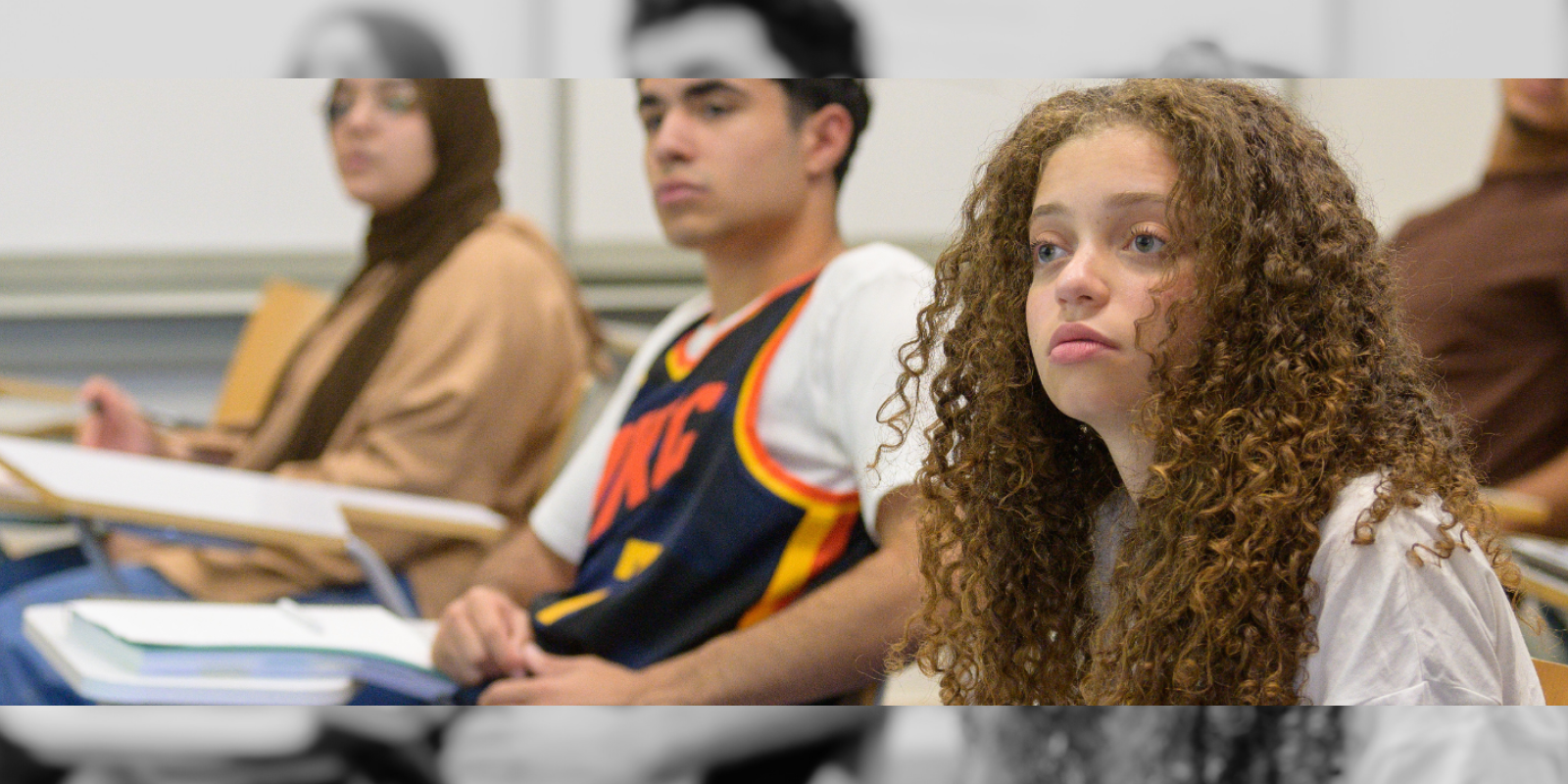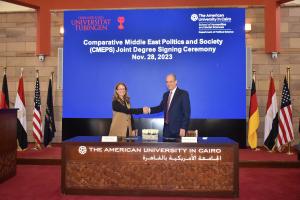
New Cybersecurity Specialization Introduced
In an ode to AUC’s global citizenry and leadership in innovation, the University is offering a new cybersecurity specialization and welcomed the first cohort of its newly launched international joint degree program.
Department of Computer Science and Engineering
The computer science and engineering department has introduced a new specialization in cybersecurity, in addition to embedded systems and artificial intelligence, which were introduced over the past two years.
“These specializations are very well aligned with the local and international job needs,” said Sherif Aly '96, professor and chair of the Department of Computer Science and Engineering. “They position our graduates to land high-quality, higher-paying jobs in the marketplace.”
Aly further stressed the need for expertise in all three subject areas among fundamental industries, from transportation systems to healthcare to telecommunications.
“These specializations are very well aligned with the local and international job needs. They position our graduates to land high-quality, higher-paying jobs in the marketplace. All of the digital infrastructure out there needs protection, and there is a huge shortage of professionals to do this."
Emphasizing that the cybersecurity specialization will fill a much-needed niche, Aly noted, “All of the digital infrastructure out there needs protection, and there is a huge shortage of professionals to do this."
Master of Arts in Comparative and Middle East Politics and Society (CMEPS)
Currently in its inaugural year, CMEPS is a joint program offered by AUC and Eberhard Karls Universität Tübingen in Germany. The joint-degree program comes after 10 years of successful collaboration between the two institutions, and its inception marks a milestone as AUC’s first official joint degree with another university.
“Applying for the CMEPS program was an excellent decision. The small cohort size allowed for close, meaningful interactions with professors, who were eager to provide valuable academic insights."
Students in the program will complete their studies between the two institutions, including an internship, a semester abroad at the partner institution, as well as Arabic and German studies. The program is the first of its kind, offering a political science degree that is accredited in both Germany and the United States.
“Applying for the CMEPS program was an excellent decision,” said CMEPS student Angelos Chatzigiannis, who was seeking a Middle East-focused master’s program. “Coming from the Tübingen side, I was impressed by the academically rigorous schedule that blended theory and practice. The small cohort size allowed for close, meaningful interactions with professors, who were eager to provide valuable academic insights."



